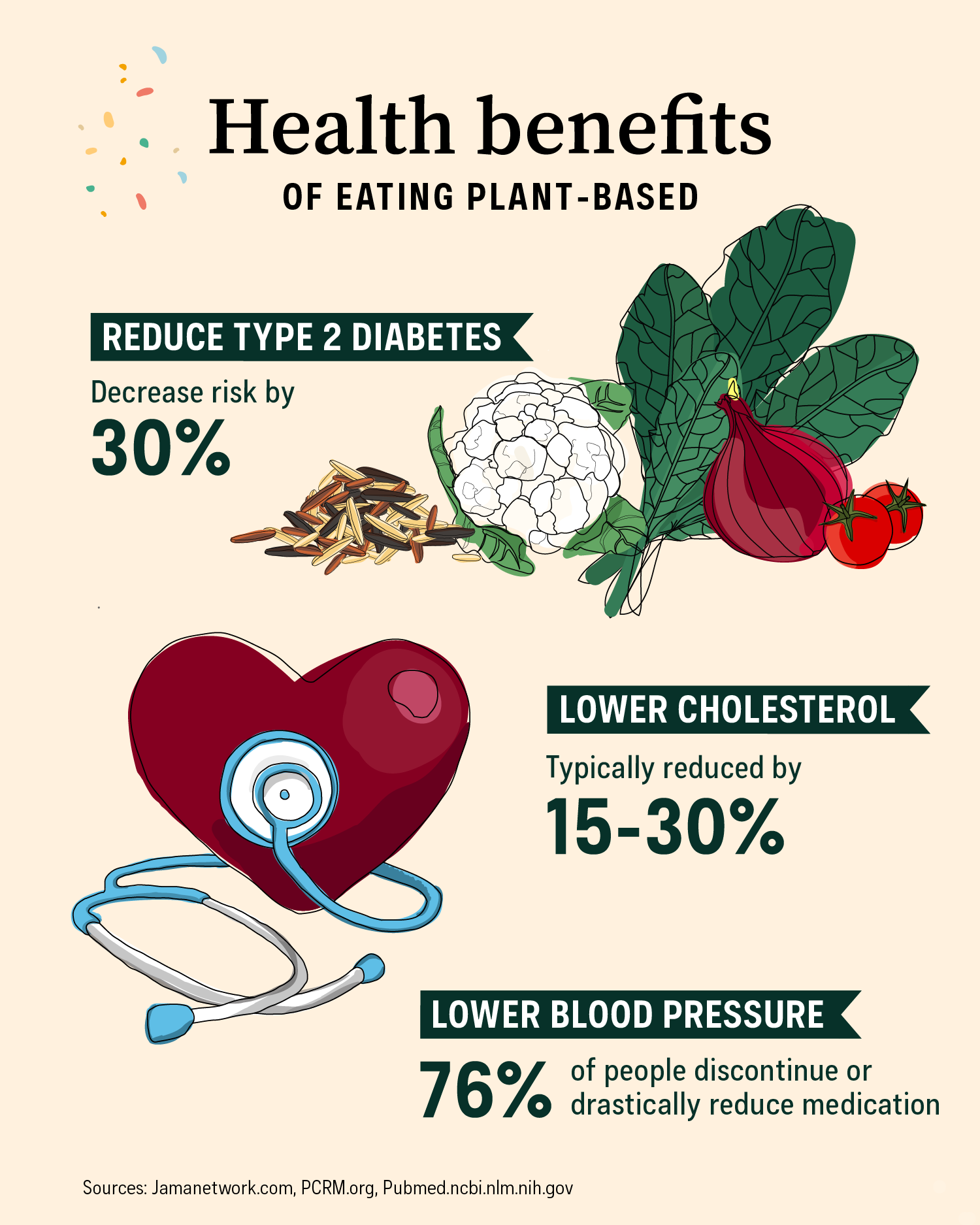High blood pressure, also known as hypertension, is a common condition that can have serious health implications if left untreated. Understanding the causes and risk factors of high blood pressure is crucial for effective management, and adopting a plant-based diet can play a significant role in controlling blood pressure levels. In this article, we will explore the impact of diet, exercise, stress management, and building a support system for maintaining healthy blood pressure in the long term. Let’s dive in!
Understanding High Blood Pressure
High blood pressure, also known as hypertension, is a common condition that affects millions of people worldwide. It occurs when the force of blood against the walls of your arteries is consistently too high. If left untreated, high blood pressure can lead to serious health problems such as heart disease, stroke, and kidney damage.
There are various causes and risk factors for high blood pressure, including genetics, age, lifestyle choices, and underlying health conditions. Factors such as smoking, obesity, high salt intake, lack of physical activity, and chronic stress can all contribute to the development of hypertension.
Monitoring your blood pressure regularly is crucial to preventing complications and managing the condition effectively. Understanding the numbers and what they mean – systolic pressure (the top number) and diastolic pressure (the bottom number) – can help you and your healthcare provider determine the best course of action for maintaining healthy blood pressure levels.
Impact of Diet on Blood Pressure
Making dietary and lifestyle adjustments can significantly assist in lowering blood pressure and may even decrease or eliminate the need for medication. It is important to consult with your healthcare provider when altering your diet to manage any changes in your medications.
Individuals who adhere to a plant-based diet typically experience lower blood pressure levels compared to those who consume animal products. An analysis conducted in 2014 examined 39 studies and indicated that vegetarians generally exhibit reduced blood pressure levels when contrasted with individuals who consume meat.
Fruits and vegetables contain potassium, which aids in reducing blood pressure. Plant-based foods typically have low levels of fat and sodium and do not contain cholesterol. By avoiding meat, dairy products, and excess fats, the blood’s viscosity decreases, making it easier to pump and thus lowering blood pressure.
Limiting sodium intake can also aid in decreasing blood pressure. Research shows that restricting sodium can lower systolic blood pressure by 3.6 mmHg. To reduce sodium consumption, it is advisable to avoid or moderate the intake of processed foods, canned goods, snacks, and dairy products, and to cut back on salt usage in cooking and at the table. Naturally, vegetables, fruits, grains, and legumes have low sodium content.
Benefits of a Plant-Based Diet for Hypertension
A plant-based diet is linked to lower blood pressure levels. Fruits and vegetables are high in nutrients that support heart health. Plant-based foods are low in saturated fats and cholesterol, making them ideal for managing hypertension. Including a variety of plant-based foods in your diet can improve overall cardiovascular health.

Incorporating Exercise into Your Lifestyle
Regular physical activity is beneficial for blood pressure control. Exercise helps to improve blood circulation and strengthen the heart. A combination of cardiovascular exercise and strength training can support overall cardiovascular health. Finding enjoyable ways to stay active is key to maintaining a consistent exercise routine.
Stress Management Techniques for Blood Pressure Control
Chronic stress can contribute to high blood pressure. It’s important to incorporate stress management techniques into your daily routine to help reduce your stress levels and improve your overall health.

Here are some effective stress management techniques:
- Deep Breathing: Practice deep breathing exercises to calm your mind and body. Take slow, deep breaths in and out to help lower your heart rate and reduce stress.
- Meditation: Spend a few minutes each day meditating to clear your mind and promote relaxation. Find a quiet space, close your eyes, and focus on your breath to help reduce stress levels.
- Yoga: Incorporate yoga into your fitness routine to improve flexibility, strength, and mental well-being. Yoga poses, combined with deep breathing, can help reduce stress and lower blood pressure.
- Mindfulness: Practice mindfulness by being present in the moment and focusing on your thoughts and feelings without judgment. Mindfulness can help reduce stress and improve overall mental well-being.
By incorporating these stress management techniques into your daily life, you can better control your blood pressure and promote a healthier lifestyle.
Building a Support System for Health Goals
Having a support system can help you stay motivated and accountable for your health goals. Engaging with friends, family, or online communities can provide encouragement and guidance. Sharing your journey with others can create a sense of community and shared achievement. Seeking professional support from healthcare providers or nutritionists can offer personalized guidance for managing high blood pressure.
Long-Term Strategies for Maintaining Healthy Blood Pressure
Consistency is key when it comes to managing high blood pressure long-term. It’s important to regularly monitor your blood pressure levels and make necessary adjustments to your lifestyle as needed.
Creating a sustainable plan that includes healthy eating, regular exercise, stress management techniques, and social support is crucial for maintaining healthy blood pressure.
Adopting a proactive approach to your health can help prevent complications and ensure that you maintain optimal blood pressure levels over time.
















































